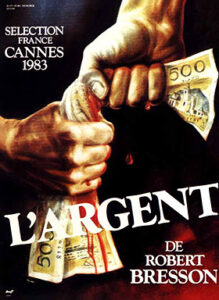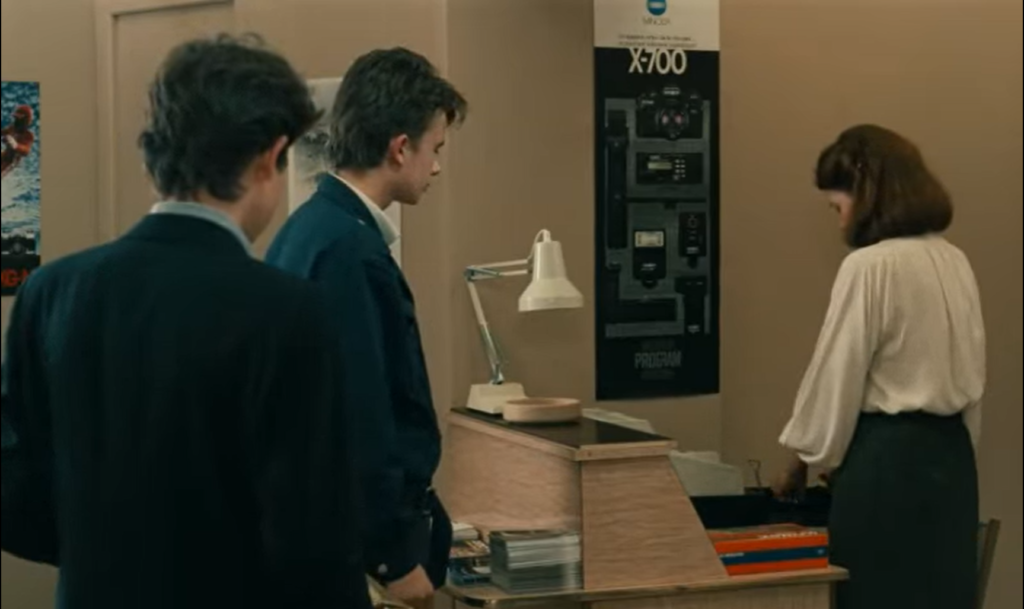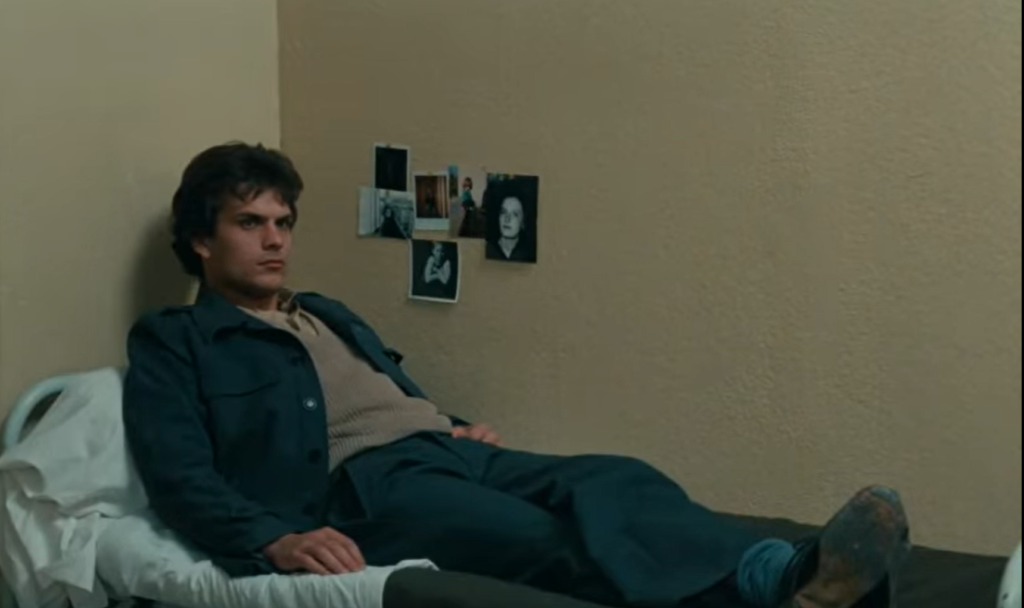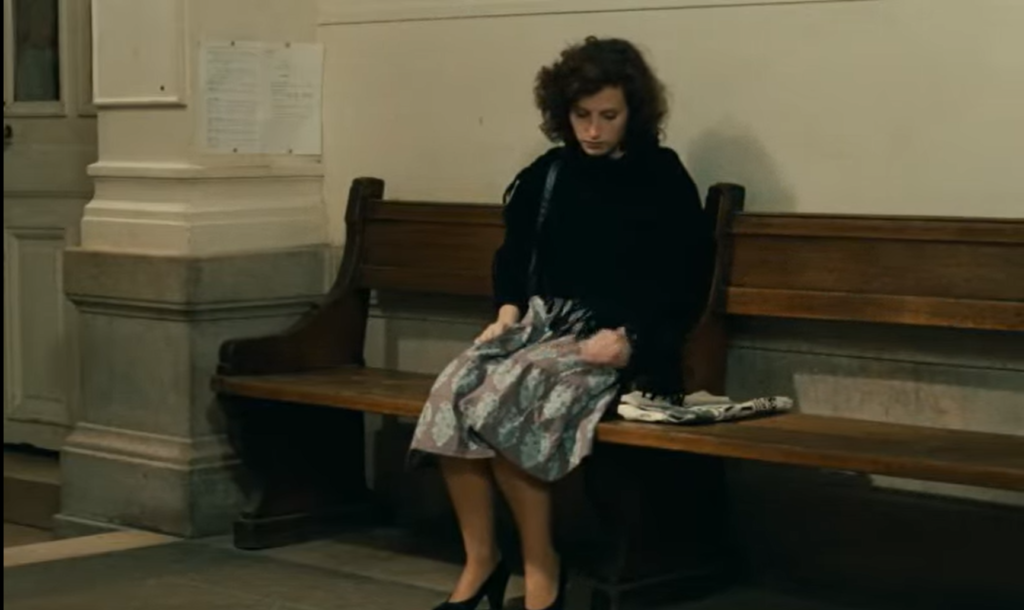Argent, L’ (1983)
“Oh, money, visible god — what we wouldn’t do for you.”
|
Synopsis: |
|
Genres, Themes, Actors, and Directors:
Review: — quickly shifts to criminal activity, as the shop’s irritated owner (Didier Baussy) knowingly pawns the money off onto Patey, who is subsequently arrested when he innocently tries to spend his earnings. When Baussy convinces his employee (Vincent Risterucci) to lie against Patey in court, Patey’s downward spiral continues, leading him to a life of petty crime, violence, and imprisonment: which are ultimately viewed as catalysts for the death of his daughter and the dissolution of his marriage. In the film’s tragic denouement, Patey impacts the lives of yet another innocent family — thus perpetuating the cycle of devastation sparked by the film’s opening “boyish prank”. It’s bleak stuff, to be sure, and Bresson’s signature application of stylized detachment makes it particularly difficult to watch the story with anything other than morbid curiosity. Indeed, the entire screenplay — which borders strategically on contrivance — seems more like a formalized exploration of moral ambiguity than a living narrative, and I’ll admit I’m not sure where my sentiments on it lie. With that said, as the capstone of Bresson’s unique oeuvre, most film fanatics will at least be curious to check it out. Redeeming Qualities and Moments: Must See? (Listed in 1001 Movies You Must See Before You Die) Links: |




One thought on “Argent, L’ (1983)”
A must.
To me, this dispassionate morality tale is a representation of one of the things cinema does best: holding up the mirror to reflect truth about the human condition.
While the basic plot is simple, a lot goes on in the 80 minutes that seem to fly; a single idea branches out in unexpected ways.
Life for us is rather manageable, of course, if we at least have the money we need to get by. If we don’t have quite enough of it, we do what we can to legitimately resolve that. This film, however, is about the darker nature of money, esp. when it is manipulated. On another level, the film is about the nature of man himself. Both money and man are, in a sense, innocent as long as they do what’s expected of them. But when the nature of either is subverted for whatever reason, innocence is lost.
On that note, it’s interesting that the money that causes the initial trouble in the film is not stolen but forged. It’s not real at all, it only seems so. By extension, Patey is not at all what he seems to be. He appears innocent, real – but, when life turns on him for no reason, his true nature emerges. This is a man who, when we first meet him and see his quiet family life, appears to accept the lower rung he exists on – until he’s pushed down even from that.
From there, the film moves to an even deeper dimension – which is probably best left up to the viewer to contemplate. (Thank God certain moments near the end are handled in an extremely understated fashion. It would probably be unbearable otherwise.)
Bresson’s film presents a very harsh view of a very real and complicated aspect of life. It’s an impressive and memorable piece of work.